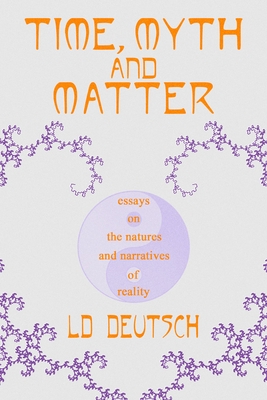Time, Myth and Matter by LD Deutsch is a collection of five essays, including revised and expanded versions of her highly esteemed zines published by Sacred Bones Books between 2018-2023, and an exclusive, previously unreleased essay, all of which explore the intersections between techno-scientific thinking and mythological narratives as they relate to life's attempt at self-definition. By placing certain histories of science and technology in conversation with collective psychological, philosophical and mythological currents (both recent and historic), Deutsch's research reveals a new space in which an original scholarly, but playful, exchange between science and the humanities takes place. In Myths & Models of Time + Timelessness, historic and modern Western scientific and philosophical perspectives on time (Aristotle/Newton, Einstein & the theories of Special & General Relativity, Minkowski/Einstein's Block Universe, Presentism vs. Eternalism, The Spatialization of Time, Neuroscientific Bases for the Scientific Preference for Eternalism ), are juxtaposed with Greek mythological (Chronos, Saturn, Kairos, Aion) and Chinese mythological and philosophical (Time as Moment of Connection Between Fields, Number Boxes Lo-Shu and Ho-Tu, Cyclical Time vs Linear Time, Acausal Connection Principles) perspectives on time, and a striking isomorphism is shown. The conversation between these different approaches to time is then used to investigate the phenomenon of synchronicity, as defined by Carl Jung and Wolfgang Pauli during their lengthy correspondence. Pluto & The Mythic Dimension traces the synchronistic parallels between the mythologies of the Roman god Pluto (and his Greek counterpart Hades), the history and cultural implications of the discovery of the planet Pluto, and the discovery of the element Plutonium and dropping of the atom bomb. This essay also investigates Pluto's archetypal role in the unconscious as well as its symbolic and astrological significance. Technomythology explores the prevalence and popularity of the simulation hypothesis through a mythological framework, while considering the ever-evolving relationship between the collective unconscious and modern information technology. Rooted in a Jungian analysis of mythological models, Deutsch tracks the concept of a computer-programmed reality from its most popular origin point, through the scientific and philosophical presuppositions for its existence, into an associative understanding of its pos











